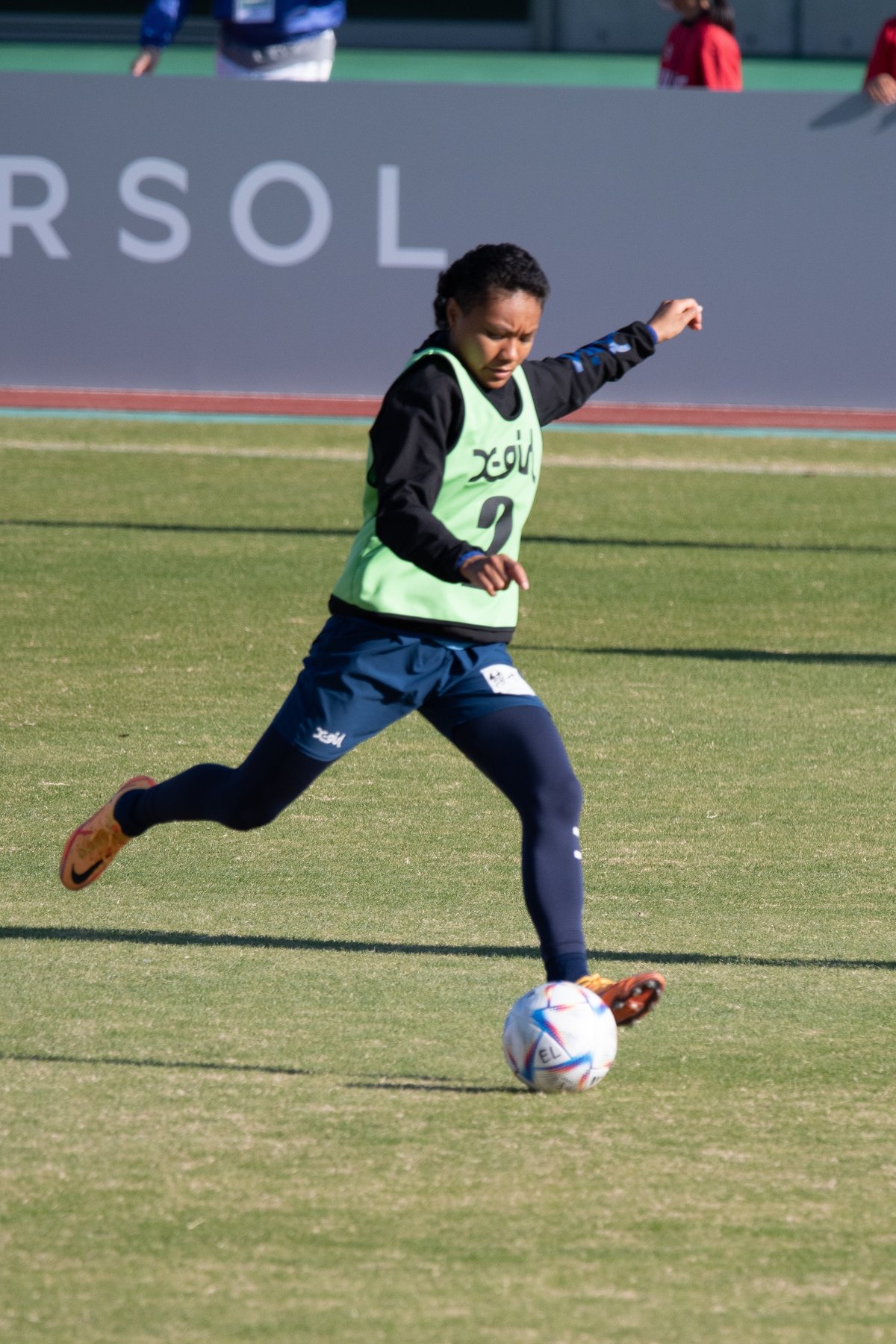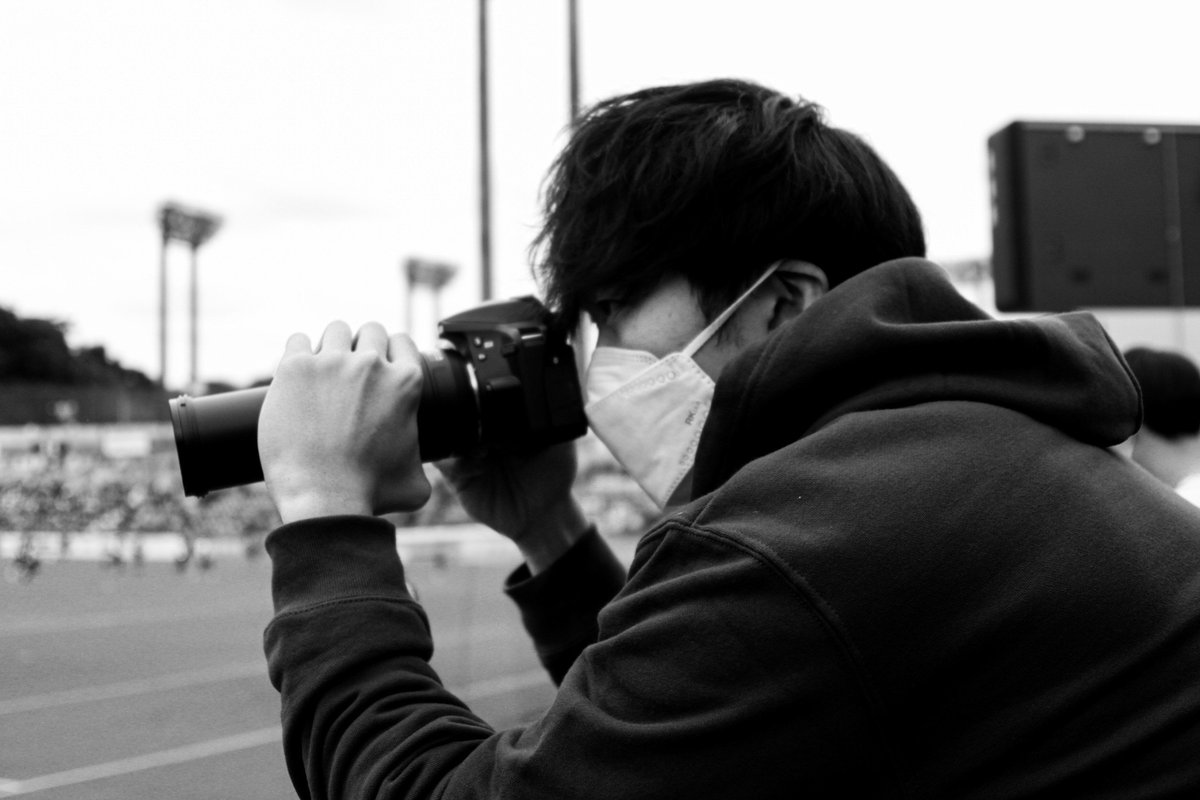
Reflecting on Sarina Bolden’s WE League Experience
Includes excerpts and quotes taken from my friend Alex’s interview with Sarina Bolden earlier this year
1.Introduction
Just before the winter break of the second season of Japan’s professional women’s soccer league, the WE League, fans of Chifure AS Elfen Saitama were handed some surprising news. Philippines international, Sarina Bolden, will no longer be a part of the team I support and has chosen to take her talents elsewhere in the AFC region.
I reached out to my friend Alex who spoke with Sarina earlier this year. Here is an account of her experience in Japan, the challenges she faced and what she has gained from her time as a pro soccer player in the WE League.
I wish her all the best for her next opportunity and hope she will continue to play an active role on the global stage of women’s soccer.
2.Sarina's Journey
The world of women’s football took note as Sarina Bolden converted her match winning penalty against Chinese Taipei and subsequently sent her Philippines side to a first ever World Cup.
Sarina arrived at Chifure AS Elfen Saitama in September 2021, just in time for the inaugural season of Japan’s WE League. Since joining the Saitama outfit she has occupied the role of a physically dominant center forward whilst continuing to make significant contributions at international level.
The 2022 AFF Women’s Championship golden boot winner has now decided to part ways with Japan and will begin a new chapter with A-League Women side Western Sydney Wanderers FC. But how was her time playing in Japan spent and how has it shaped her game?
Earlier this year I was fortunate enough to sit down with Sarina and hear all about her WE League journey.
“It was great to be back with Elfen for a second season and the tactical improvements are clear for all to see. The new coach has brought in some great ideas and she has more of an attacking mindset. I felt like I learned a lot this season.”
Acclimatizing to cultural differences, both on and off the pitch, is a process all footballers experience when entering a foreign league. Many will embrace the challenge and consider it an opportunity to add attributes to their game that may otherwise be lacking.

“Naturally there are ups and downs, particularly when navigating the cultural differences and the language barrier. The style of play in Japan is at a high level and really technical so getting that first year under my belt was really important heading into my second season with Elfen.”
“My teammates have been great in helping me adjust to the league and add new attributes to my game. I feel I know and understand a lot more than when I first arrived and I have ended up using a lot more Japanese in practice and in games. For sure I am more accustomed to the language and cultural differences and it’s really rewarding to have overcome these challenges.”

This is a typical journey for overseas players in Japan. As it stands the language barrier is still thick and most take time to acclimatize to cultural and linguistical challenges both on and off the pitch. Usually, a player will depart after just a single season, but not without adding a new technical dimension to their game.
Conversely there are attributes physically gifted players like Sarina can offer the Japanese game.
“I feel I am stronger and more physical than a lot of my Elfen teammates so I am able to use my strength as an advantage from time to time. I also have that attacking mindset of always wanting to get that goal. I am always thinking about taking risks and taking shots, even if it doesn’t always make sense. That knack of figuring out goal scoring opportunities is kind of a little harder to coach and it’s something I grew up with.”

Sarina was surrounded by creativity at Elfen. U20 Women’s World Cup star Riko Yoshida and dynamic forward Hikaru Yumura are but a few of the playmaking talents able to offer service in the final third. Using her physicality and instinct for goal, she can dislodge defenses and create viable goal scoring opportunities for herself or a teammate.


“The American style I grew up with is all about fitness and physicality. It’s very high tempo and much more direct than what we have here in Japan. There are pros and cons to this style but it’s where my development took place and how I would characterize my own game.”
“I feel the strengths of the Japanese game, such as rapid passing combinations and creative dribbling skills, mixes well with the physical attacking threat that I can offer. If my teammates can play their way through the lines or play that killer pass then I can use my strength to make that run in behind for a goal scoring opportunity.”
“That said, we all need to work on our technical skills at the same time. Over in the US there is much less emphasis on developing technique, in my opinion. Being strong and physical is great but we all need technical skills and this is an aspect I feel I could really harness in the WE League.”

The learning process swings both ways. While players originating from footballing cultures where fitness and strength are key will add technical elements to their game, Japanese players will become accustomed at handling opponents who physically out match them. This is a disadvantage the Japanese national team is commonly faced with at major international tournaments.
The obstacles Sarina has faced and overcome during her tenure in Japan can not be understated. The technical nature of the WE League renders it somewhat inaccessible to many players whose roots are based within the physical characteristics of the game. There is no denying that her game has evolved for the better and those she has played against have been exposed to the sort of ferocious competitor they are likely to face on the international stage.
WE & Fun thanks Sarina for talking with us and we will be sure to follow her progress with Western Sydney Wanderers before she makes history with the Philippines in their first appearance at a Women’s World Cup.

3.Read the interview.
Reading Alex's interview, I felt her struggle and what she has overcome.
I will be watching to see how what she has left behind for Japanese women's soccer will blossom in the years to come.
Sarina see you at next years World Cup!
Have a great trip in Australia!!!

4.postscript
Alex. for putting the article together in a time crunch.
sora. for taking the photos.
Thanks to my two best friends.
Alex has the rights to this article.
Alex Bishop(Twitter:@ABishop32)
Profile:
Originally from England, Alex arrived in Japan in 2012 and has covered the domestic league and national team as a writer and data scout. Having grown up on the same street as a former Lioness, he has an unwavering passion for the women's game the role it plays in societal good.

Photo by
sora(Twitter:@soraardija41 instagram:@_sora_footballab)

bieenlsa(Twitter:@bieenlsa instagram:@bieenlsa.we)

